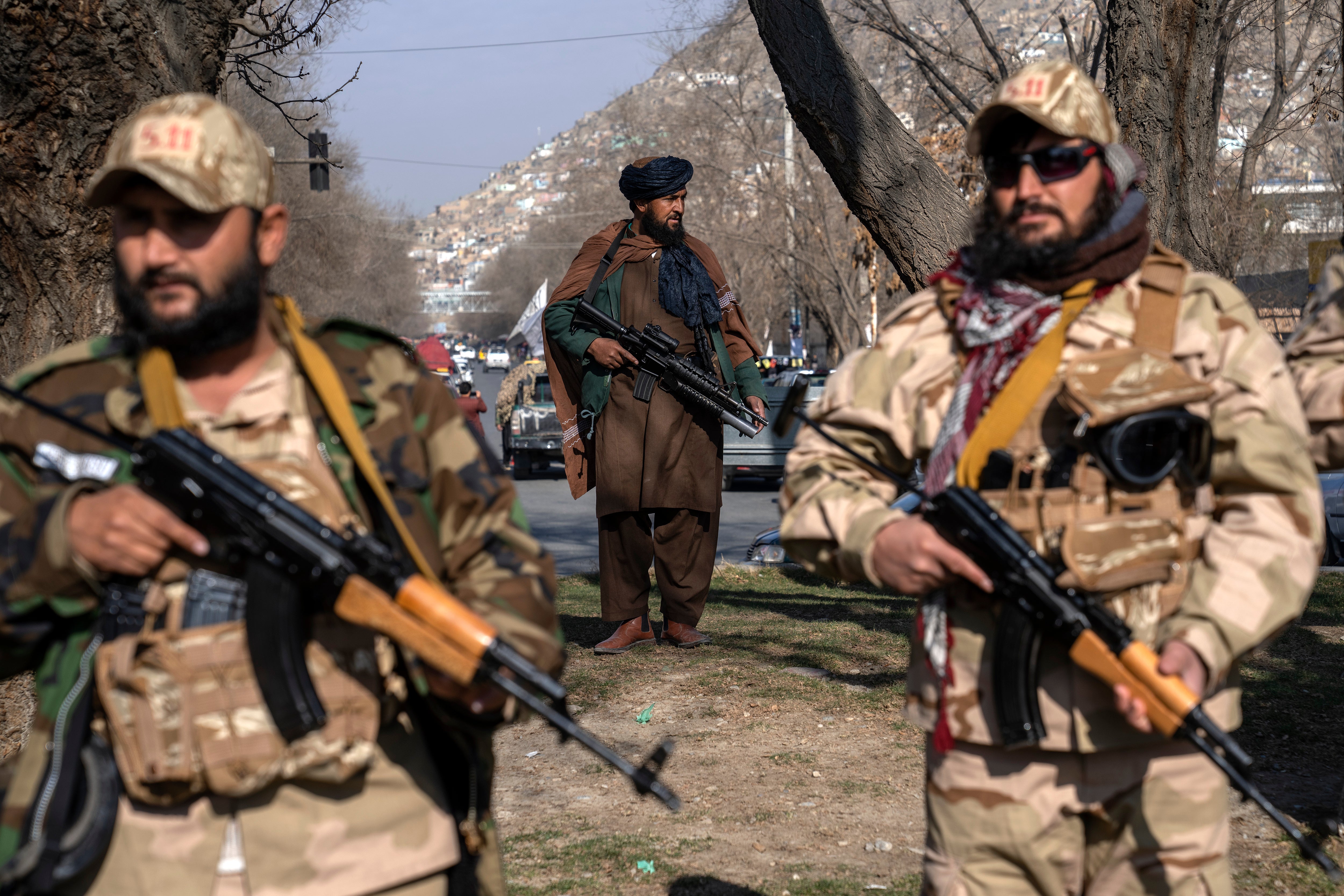The Taliban have banned windows in residential buildings to stop women from being seen while they are at home in Afghanistan.
Hibatullah Akhundzada, the leader of the Taliban, ordered that buildings should not have windows looking into places where a woman could be sitting or standing.
The order applies to both new buildings and existing ones, according to a four-clause decree posted on social media site X (formerly Twitter) late on Saturday.
The decree, posted by government spokesperson Zabihullah Mujahid on X, states that new buildings should not have windows where you can see “the courtyard, kitchen, neighbour’s well and other places usually used by women”, AFP reports.
“Seeing women working in kitchens, in courtyards or collecting water from wells can lead to obscene acts.”
They are stopping women from being seen. They are stopping women from seeing the world
Heather Barr, Human Rights Watch
The decree stipulates that in properties with windows that do not fit the new guidelines, owners will be urged to either construct a wall or block the view “to avoid nuisances caused to neighbours”.
Heather Barr, the interim deputy director of women’s rights at Human Rights Watch, told The Independent: “People have talked about the Taliban metaphorically erasing women, but increasingly, it is not metaphorical at all.
“They have already ordered that women’s voices shouldn’t be heard in public, and now they are essentially stopping women from even looking out of the window.
“They are stopping women from being seen. They are stopping women from seeing the world. It’s a total annihilation of women’s personhood and it is clearly ongoing. We don’t have any idea where this will end.”
The Taliban, a hardline Islamist group that previously ruled Afghanistan, has blocked women from the workplace, education and public spaces, as well as barring them from taking part in all sports, since seizing power after US and British forces withdrew in 2021.

Women in Taliban-ruled Afghanistan are currently prohibited from going to a salon, working out at the gym, and even speaking or praying in public.
Within a month of claiming Kabul, the Taliban’s education ministry banned girls and women from schools. The Taliban leaders also announced that the girls were barred from studying beyond the sixth grade – with the ban extended to colleges and universities in December 2022.
The window ban comes as the Taliban have said they will close all national and foreign non-governmental groups (NGOs) in Afghanistan that employ women.
It comes two years after they told NGOs to suspend the employment of Afghan women, allegedly because they did not wear the Islamic headscarf correctly.
In a letter published on X on Sunday night, the Ministry of Economy warned that failure to comply with the latest order would lead to NGOs losing their licences to operate in Afghanistan.

The United Nations said that the position of women in Afghan society had shrunk dramatically in the last two years, and reiterated its call for the Taliban to reverse the restrictions.
“This really impacts how we can provide lifesaving humanitarian assistance to all the people in Afghanistan,” UN associate spokesperson Florencia Soto Nino-Martinez said.
“And obviously we are very concerned by the fact that we are talking about a country where half the population’s rights are being denied and they are living in poverty, and many of them, not just women, are facing a humanitarian crisis.”
The ministry said it is responsible for the registration, coordination, leadership and supervision of all activities carried out by national and foreign organisations.
The government is once again ordering the stoppage of all female work in institutions not controlled by the Taliban, according to the letter.
It is the Taliban’s latest attempt to control or intervene in NGO activity.
Earlier this month, the UN Security Council heard that an increasing proportion of female Afghan humanitarian workers were prevented from doing their work even though relief work remains critical.
According to Tom Fletcher, a senior UN official, the proportion of humanitarian organisations reporting that their female or male staff were stopped by the Taliban’s morality police has also increased.
The Taliban deny they are stopping aid agencies from carrying out their work or interfering with their activities.
Additional reporting by AP
Article by:Source





















